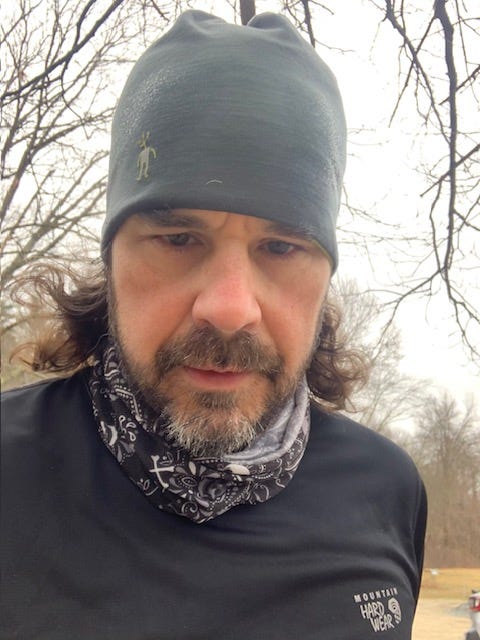(Marathon week sale: A 20 percent discount on a 1-year subscription to Running, Probably. Offer ends April 24.)
The other day, I read a piece in the Times about VO2 Max. Like all pieces about this particular metric, it came with an over-promising headline – The Best Way to Track Fitness and Longevity – backed up by a bit of hype from an expert who called VO2 Max, “The best piece of empirical information we have on health and longevity.”
Of course, VO2 Max tests are expensive and impractical for the vast majority of the population. They involve running on a treadmill in a laboratory while hooked up to a specialized mask that measures the amount of oxygen and carbon dioxide you inhale and exhale during exercise to exhaustion. Fun.
In addition, your individual VO2 Max depends on a host of factors like age, gender, genetics and (presumably) how you were feeling when you subjected yourself to such an invasive examination in the first place. In case you were wondering, the VO2 Max reading you get from your watch is at best an approximation, and quite possibly completely arbitrary.
When accurately measured, VO2 Max may be an interesting metric but it has very little practical application outside the lab. It’s not like anyone wears a medal with their VO2 Max score on their chest. Besides, if you tailor your training specifically to enhance VO2 Max, what are you really accomplishing? You get the same bang for your aerobic buck doing speed workouts and time trials while training for a race.
Way down at the end of the Times piece, the same expert quoted at the beginning of the story offered a slightly different assessment: “The best predictor of performance is your performance,” she said.
We sign up for races because we have something to prove. Whether it’s to ourselves or other people, this desire to push ourselves to our individual limits is an inherent component of being a runner.
For some of us, our competitive drive was the main reason we got into running in the first place. Without the structural comfort of team sports or readily available friends to play pickup hoops, scratching that competitive itch became more difficult as we got older. Running affords us the opportunity to fuck around and find out, as the kids say.
Still, the allure of competitive running is a double-edged sword. While it may motivate us to stay sharp, it can also slice us to ribbons if we let it dominate our thoughts. Burn too hot for too long and we run the risk of peaking too soon, getting injured, and suffering long-term burnout.
Especially as we get older, choosing to run with a competitive edge presents us with a balancing act. We must work harder than we did when we were younger to compensate for our bodies' natural aging process. Yet, we also must work smarter by emphasizing rest and recovery.
If we can all do that and stay healthy and motivated for four months of intense training despite the myriad challenges modern life throws our way, then we have an opportunity to measure our progress for real. Not in a lab in a controlled environment, but out in the wild where nature holds sway and we are at the mercy of the elements.
At some point, the idea of competing with others becomes way less important than measuring our progress against the expectations we place on ourselves. In doing so, we allow ourselves an opening to experience failure as well as success, to feel vindicated as well as vanquished. In other words, racing affords us the rare privilege of feeling alive. That’s the only measure of progress I’ll ever need.
My marathon goals for Saturday’s race are as follows:
Primary: Secure a Boston Qualifying time by running sub 3:20.
Stretch: Make good on a decade-long quest to go under 3:15.
F-around and find out: Sub 3:10.






Send it Paul!
When I started reading the newsletter I was a casual runner at best, since that time I have done a marathon and tomorrow I will attempt my first 50K. Thanks for inspiring me to race and fuck around and find out!
Love your perspective and your writing, Paul! I ran my first marathon in 2018 at 5:30. I was so proud about the fact that I just finished (still am!). By 2022 I had carved by time down to 3:25 and now, at 42, I'm looking at that 3:10 BQ time and wondering if I can get there. It's not even the time that matters to me that much but just the idea that I want to be able to stack all the pieces up together to give myself a shot at it. Might not hit the time this year, or next year, or maybe I'll never hit it -- but, man, I just want the shot to go for it.